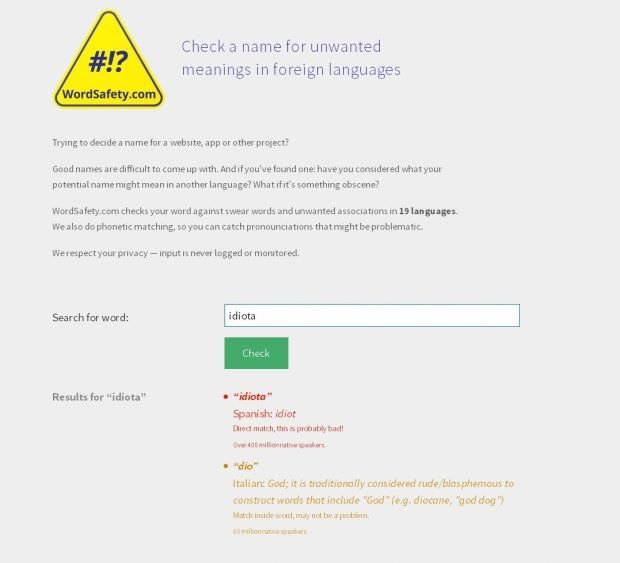WordSafety is a new website that started a few days ago and lets you check if a word means something ugly in another language.

Starting a new business can be quite difficult since you need a serious amount of capital. But the matter does not stop there. In the age of the Internet, the company it is very easy for you to become known worldwide and even from the very first moment.
Most newcomers today are trying to launch something different, including their name, which is usually done with a .com domain. Since almost all common .com termination words have already been purchased, most new entrepreneurs invent words that often end up having hidden meanings.
Services such as Lauchnink or Namebird provide business owners the tools to randomly generate a new company name and then register it as a domain, but these tools can sometimes put them in unfortunate word associations.
Here is where WordSafety enters the game, allowing users to enter their own words as well as word combinations and see if they have bad meanings in other languages or even if they are simply flattering to the owner's business and activity.
Η service has one today base data of 3.000 words and supports Arabic, Bengali, Chinese, Dutch, English, Finnish, French, German, Hindi, Italian, Japanese, Korean, Malay, Persian (Farsi), Polish, Portuguese, Russian, Spanish, and Swedish.
These 19 languages cover 3,8 billion of the world's population, and should help you avoid disturbing situations when you expand your company's activity abroad.





